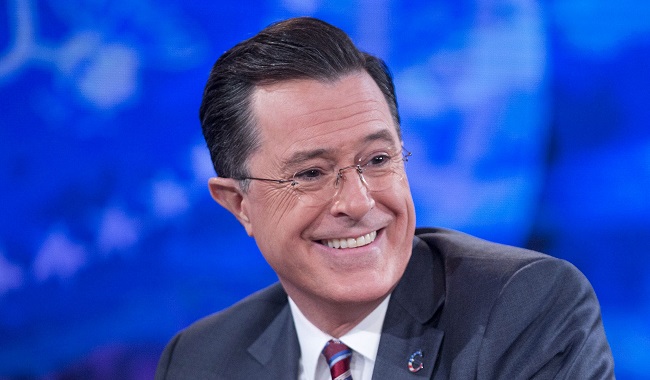
While CBS turns its Tuesday night programming over to its news team for election night coverage, Late Show host Stephen Colbert will report on and ridicule the results with a Showtime special. Colbert already teased the upcoming venture, but that didn’t stop him from sitting down with NPR’s Terry Gross to promote it on Wednesday’s edition of Fresh Air. The interview quickly turned into a deep dive into the Comedy Central alum’s Colbert Report, the titular character he played during its 10-season lifespan, and why he ultimately decided to retire it.
Colbert chalked up The Colbert Report‘s dissolution to “truthiness,” the concept popularized by the program that insisted how people felt about something was more important than whatever the relevant facts indicated:
“We embodied it satirically, though it’s not really a new idea. As you can see it’s been amplified in interesting ways since we went off the air. But I didn’t want to play that game anymore. That was a single thesis statement we tried to remind ourselves of everyday. When in doubt, I would just recite those mantras to myself, about ‘What is truthiness?’ and ‘I’m looking out for you’ and ‘Because I’m looking out for you, I’m also looking over your shoulder because I’ve got your back.'”
In order to get into (and stay in) character, Colbert constantly reminded himself of these points and others — a process that ultimately became quite taxing, so much that he “just couldn’t take playing that character anymore,” as he felt like he was “stumbling downhill with an armful of bottles” and would soon drop it all.
Most significantly, he worried he “[couldn’t] actually keep this up without hurting someone” — a point Gross found both perplexing and fascinating:
GROSS: Hurting someone?
COLBERT: Yeah.
GROSS: What do you mean?
COLBERT: I don’t know. It’s a feeling. I thought maybe I would make some big mistake with the character, because he would say terrible things. I got away with some of the terrible things he would say or do because it was all filtered through his mask, but if I didn’t maintain the mask, it would just be me being terrible. He would say hateful things, or hurtful things.
Ultimately Colbert determined to let his Comedy Central alter ego go since it required a great degree of “discipline,” which he felt was “slipping.” He feared one of the more negative results of this (aside from bad reviews) would be his “[sliding] into being like the thing that [he] was mocking.”
(Via NPR)







